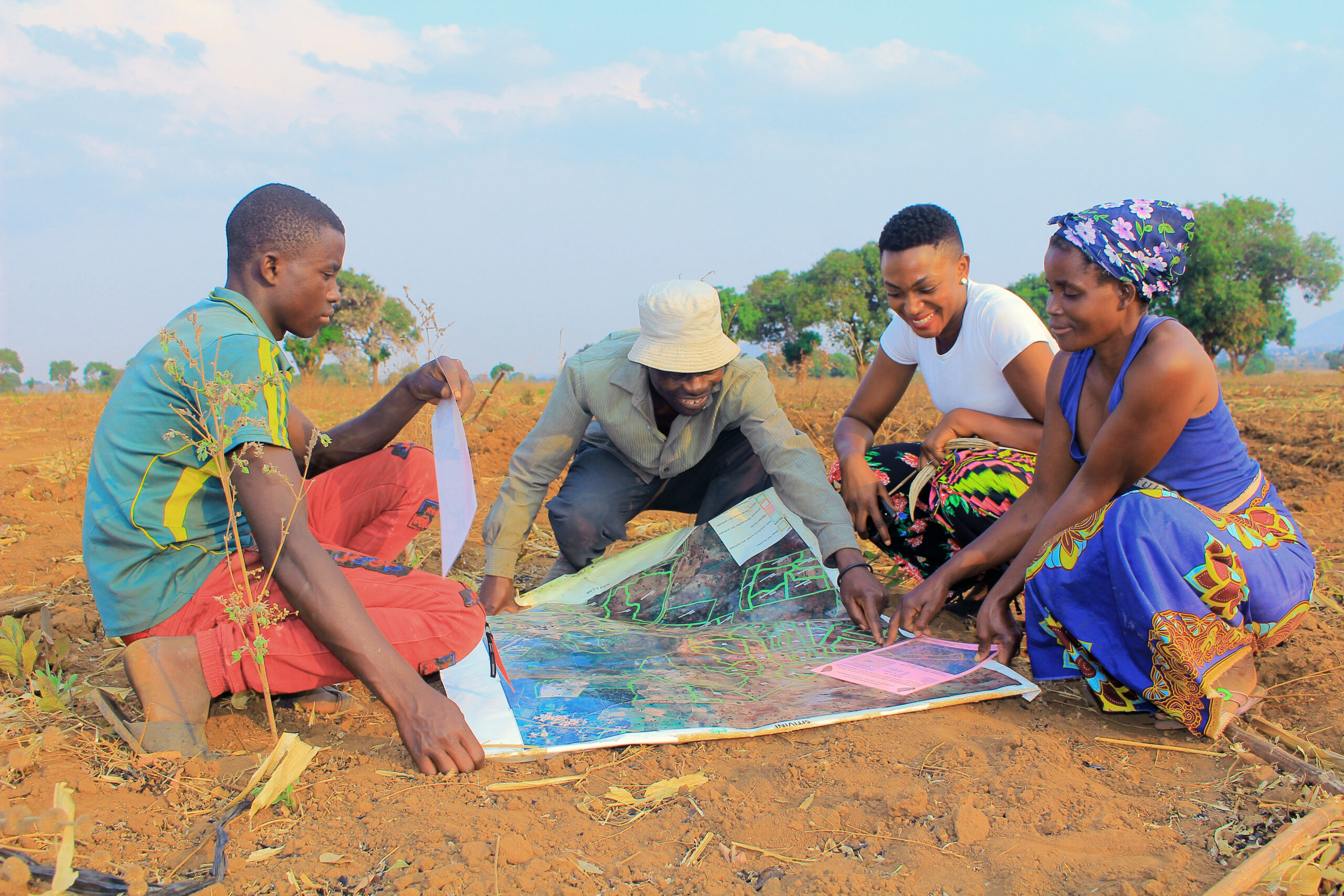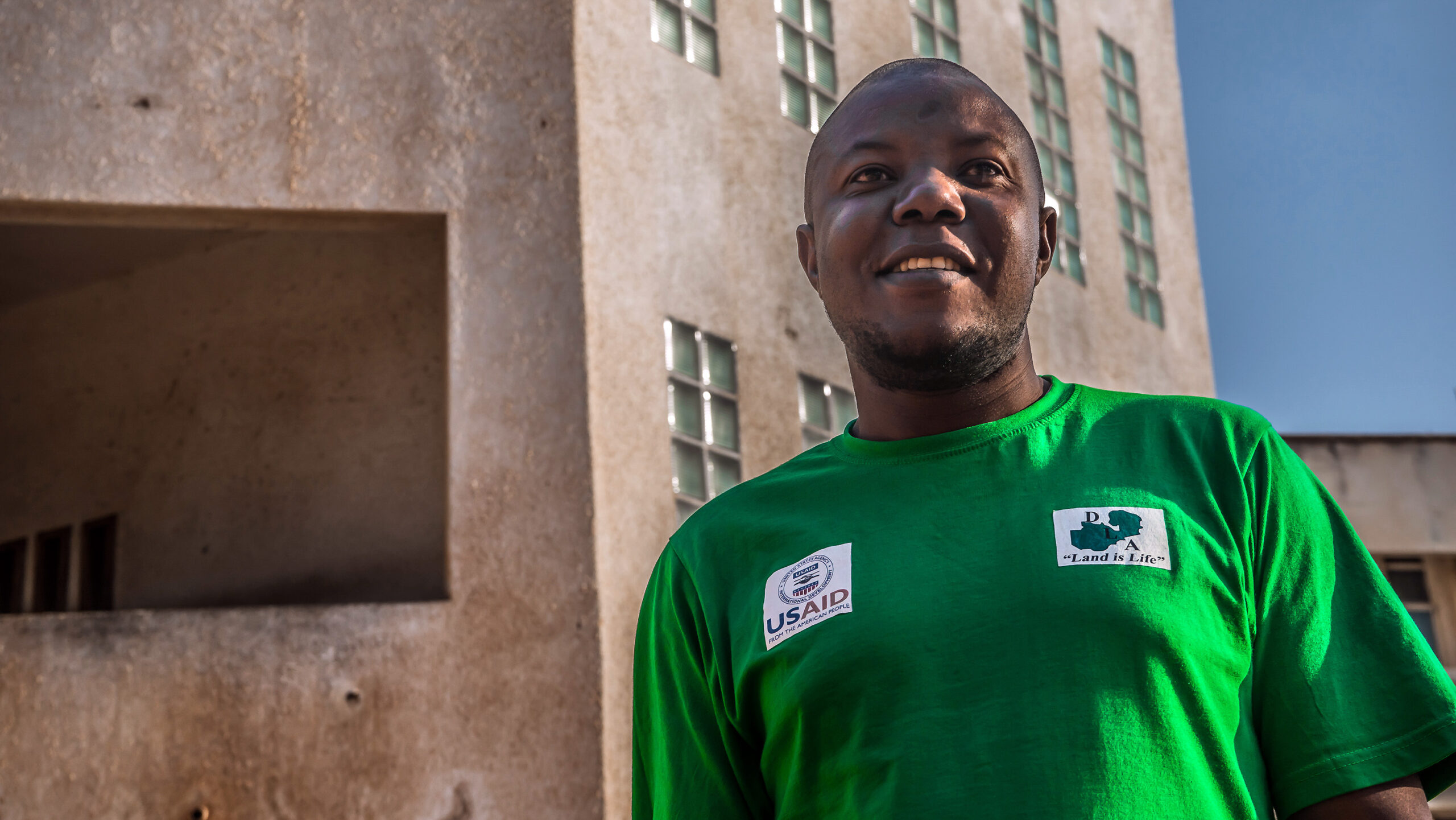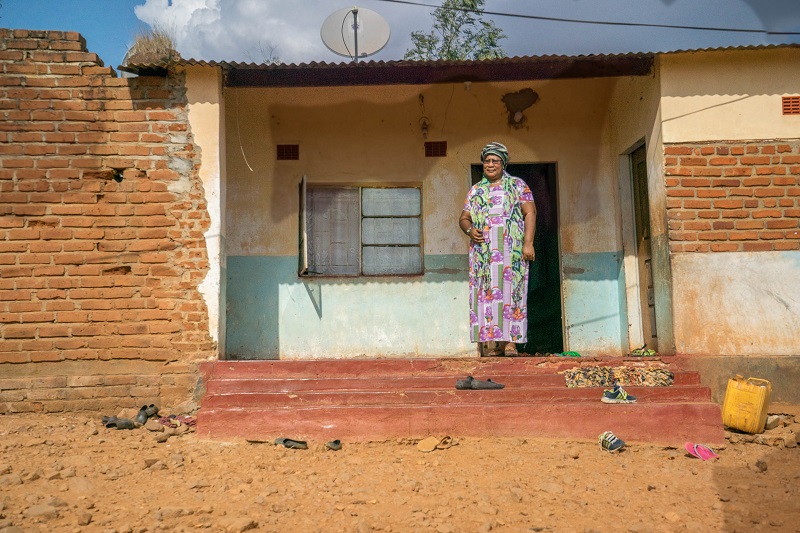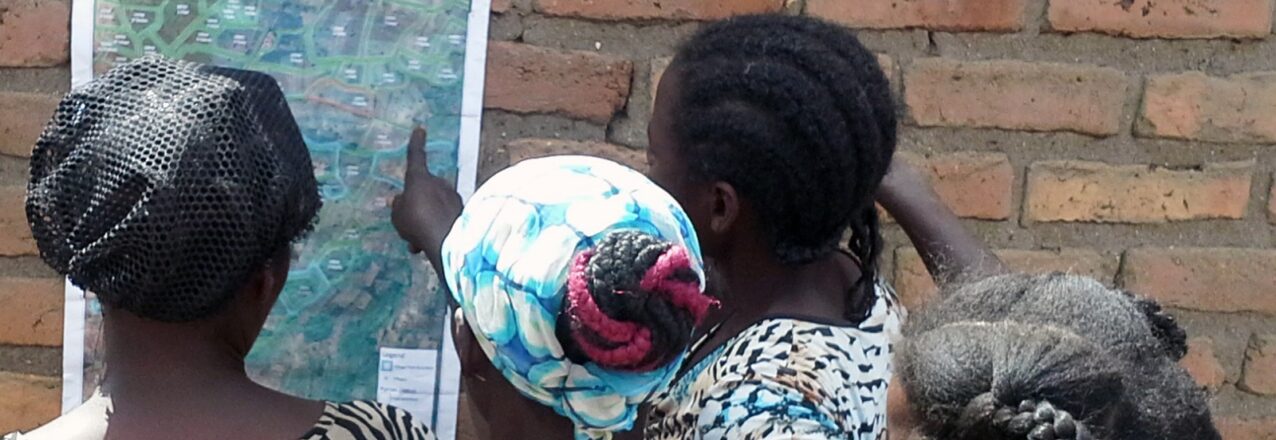Banner Photo: Female community members at Chiuye village in Nyamphande Chiefdom of Petauke District check over their parcels during the objections, corrections, and confirmation process. (Photo credit: Chika Banda/PDLA)
USAID-funded land documentation programs help secure daughters’ land inheritance rights and promote girls’ empowerment on the International Day of the Girl Child
When it comes to women’s land rights and gender norms, John Mwanza was no different from most men in many areas of rural Zambia. A local village leader, he believed that despite the bonds of marriage, his wife should not be granted ownership rights to his family’s land. John had also never considered that his daughter should be a beneficiary to the family’s land. He believed that one day she will marry a man who might end up taking the land from his family. Now, through the USAID-funded Integrated Land and Resource Governance (ILRG) program, Mr. Mwanza has had a change of heart and become a champion for ensuring that women, and particularly daughters, have rights to the land they live on.

Zambia has a dual land tenure system, with state land administered by the government and customary land administered by chiefs and other traditional leaders. Gender norms in both matrilineal and patrilineal societies hinder the land rights of women and their daughters. Family loyalties are defined by blood, and since wives are not directly related to the husband’s family, they are often excluded from land documentation. When women marry they are expected to move to their husband’s family land, so girls are also precluded from land inheritance. In most cases, only a man’s relatives and male descendants are allowed to inherit family land.
“Land is the bottleneck and the barrier that we could never get past. Everyone wants more, so they take advantage of the widows and make claims. Prior to CDLA’s arrival, each week, dozens of households lined up seeking resolution to conflicts over field boundaries. Now there is peace in the chiefdom.” Chieftainess Mkanda, Chipata District, Zambia.
Conversations about deep-seated gender biases are part of the USAID program’s efforts to increase land tenure security in Zambia and the wider strategy to challenge harmful gender norms that prevent women from owning and fully benefiting from land and natural resources. The ILRG program is working with local civil society organizations, such as the Chipata District Land Alliance (CDLA) and Petauke District Land Alliance (PDLA), to advance women’s social and economic empowerment through land rights in Zambia’s Eastern Province.
Customary land documentation helps low income farmers protect their land and provides security in the event of ownership conflicts, which is common among neighbors, relatives, and outside investors. For women, secure land rights offer opportunities to access financial services and higher social standing, and shift household and community-level decision-making dynamics on how resources are spent and distributed. Secure land rights are thus an important pathway for women’s economic empowerment.
Through ILRG, USAID is pioneering customary land documentation by employing socially inclusive GPS and smartphone technology known as MAST, or Mobile Approaches to Secure Tenure. The approach integrates gender in land documentation to ensure women’s interests in land are registered, even in male-dominated systems. The approach also promotes the rights of all of their children and encourages women’s leadership in local land governance. The MAST land documentation process asks chiefs, village leaders, and landowners to participate in social gatherings and community dialogue sessions that break down gender stereotypes and reinforce the idea that equal land rights benefit the family and the community.

“It’s our job to remind the community that by registering their wives and daughters as persons of interest or landowners, it makes sense from the family’s perspective to secure and protect their land,” says Adam Ngoma, CDLA coordinator.
In John Mwanza’s village, the CDLA staff explain how excluding girls from family land will have serious implications on their future, limiting their livelihood opportunities and increasing their vulnerability to gender-based violence.
The participatory sessions helped men like John Mwanza, the village leader who would previously never have considered allowing his daughter to inherit his land, to appreciate gender equality and to request CDLA to list his wife as a person of interest – which protects her rights to occupy and use the land – and his daughter as a landholder. Now, his daughter will grow up secure land rights, which she can use for economic opportunities in the future.
“We are in a modern era so no need to deprive women and girls of what they deserve. Registering my wife as a landholder has helped cement my marriage and the love between my wife and I.” Weka Ziwa, Nzamane, Chipata District, Zambia. Registered all six of his children during customary land documentation

In another corner of the Mkanda Chiefdom, 41-year-old Charity Mbewe has worked hard to become the village headperson and lead her community. When her father recently died, the family farm went to her brothers, because according to local gender norms daughters do not inherit land. Although Charity has four children, she never paused to think that her children could have benefitted from her deceased father’s land.
When CDLA began land documentation in her village, she worried that her female children might face a similar fate: powerless to inherit land or worse, one day become a landless widow.
Thanks to USAID’s efforts to integrate gender into customary land documentation, Charity Mbewe, worked with her siblings to include her daughters’ names as landholders of her father’s farm. Charity’s oldest daughter is married but has no land, proving that marriage does not guarantee that women can access land. In fact, her inclusion in the title of her grandfather’s farm will be the first time she will be a landholder.


